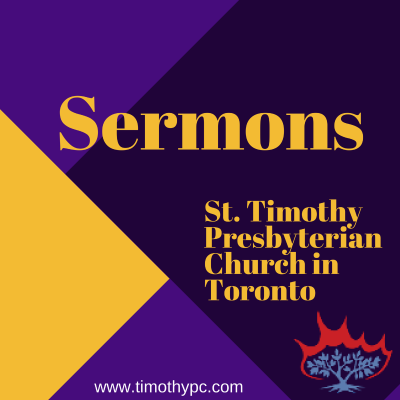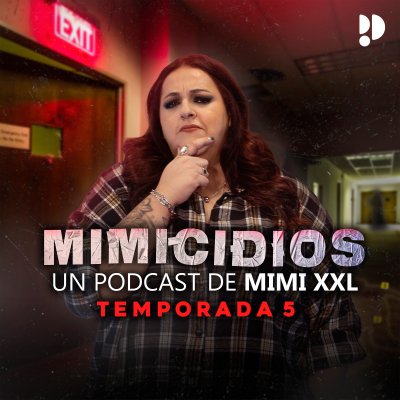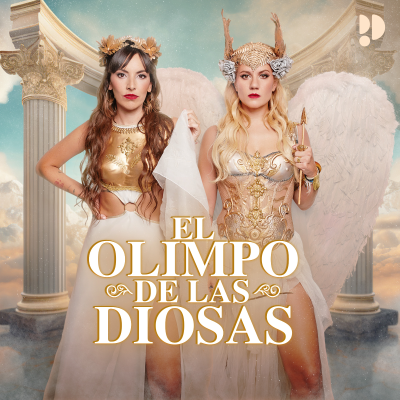
St Timothy Presbyterian Church in Toronto: Sermons
Podcast de Rev. In Kee Kim
Weekly sermons from St. Timothy Presbyterian Church in Toronto.
Disfruta 3 días gratis
4,99 € / mes después de la prueba.Cancela cuando quieras.
Todos los episodios
542 episodiosSCRIPTURE PASSAGE John 13:31-35 [https://www.biblegateway.com/passage/?search=John%2013%3A31-35&version=NRSVUE] WORSHIP VIDEO WORSHIP AUDIO SERMON SCRIPT Jesus said, I give you a new commandment, that you love one another. Just as I have loved you, you also should love one another. (John 13:34) Jesus said he gave them a new commandment. But it was not a new commandment. Already, in the Old Testament, this commandment existed. You shall not take vengeance or bear a grudge against any of your people, but you shall love your neighbour as yourself: I am the Lord. (Leviticus 19:18) So, as you see it, it was not a new commandment. Jesus did not mean that it was the new commandment as a new idea or a new concept. Love one another. It is a very simple concept. Nothing difficult to understand it. Even a little child will understand what it means. We went to see a Blue Jays ball game because my grandson, Charlie was singing the national anthem. Not a solo but his school was singing. So the whole family went. My youngest granddaughter, Norah, came and hugged me. So I said, I love you. And she said, I love you too. Even a little child knows what it means to love one another. It is a very very simple concept. But what does that mean? Love one another. It is very simple and yet very difficult. When Jesus said this, he did not mean to love those who are lovable. Jesus did not mean to love your personal friends. Jesus did not mean to love your family. Of course we love them all but I don't think Jesus had them in mind when he said to love one another. We have categories of our love. Lovable and unlovable. We love those who are lovable. We don't love those who are unlovable. When I say an unlovable category, I am not saying that they are necessarily unlovable. We are putting them in that category. With our friends, with those who love us, we love to spend time with them. We don't have to have anything fun to talk about. We just enjoy their company and so it doesn't matter what we talk about. Anything we do, we just enjoy it. That is a lovable category. But with those who criticize us, those who do not value us, and approve us, we may not hate them but we don't want to spend time with them. We want to avoid them as much as possible. That is an unlovable category. When Jesus said, love one another, what do you think Jesus meant? Love those who are in a lovable category? Think about it. Today's passage is situated like a sandwich. Of course, what's in the middle is the meat, the core content. That is – Love One Another. But it is sandwiched between two stories. One is the story of Judas and the other is the story of Peter. Today's passage begins with this, When he had gone out (John 13:31) Who had gone out? Judas. Let us read Judas' story. A little long but you will get a full picture by reading it. After saying this Jesus was troubled in spirit, and declared, Very truly, I tell you, one of you will betray me.' The disciples looked at one another, uncertain of whom he was speaking. One of his disciples the one whom Jesus loved was reclining next to him; Simon Peter therefore motioned to him to ask Jesus of whom he was speaking. So while reclining next to Jesus, he asked him, Lord, who is it?' Jesus answered, It is the one to whom I give this piece of bread when I have dipped it in the dish.' So when he had dipped the piece of bread, he gave it to Judas son of Simon Iscariot. After he received the piece of bread, Satan entered into him. Jesus said to him, Do quickly what you are going to do.' Now no one at the table knew why he said this to him. Some thought that, because Judas had the common purse, Jesus was telling him, Buy what we need for the festival'; or, that he should give something to the poor. So, after receiving the piece of bread, he immediately went out. And it was night. (John 13:21-30) Another story is the story of Peter. Simon Peter said to him, Lord, where are you going?' Jesus answered, Where I am going, you cannot follow me now; but you will follow afterwards.' Peter said to him, Lord, why can I not follow you now? I will lay down my life for you.' Jesus answered, Will you lay down your life for me? Very truly, I tell you, before the cock crows, you will have denied me three times. (John 13:36-38) What we read today is sandwiched between these two stories. Betrayal and denial sandwiched the commandment Love one another . Jesus talked about loving one another in the context of betrayal and denial. So when Jesus said Love one another , he didn't mean to love those who are in the lovable category. Loving those who love you is selfish love. Love for the sake of your own enjoyment and your own benefit. It is love that you do for yourself. Everywhere we look around, we only see this kind of love. Love has become so cheap. Self-satisfaction. Loving one another has become satisfying one another. This was what Jesus said. If you love those who love you, what credit is that to you? For even sinners love those who love them. (Luke 6:32) Love, by its definition, is not selfish. It is not self-seeking. When Jesus said, Love one another , he meant to love those who are in unlovable category. Love your enemies - even though the idea is there in the Old Testament, the actual phrase does not come out in the Old Testament. It is Jesus who coined the term. But that is the idea of Jesus' understanding of love. In that sense, Love one another is a very easy concept but a very difficult way to live out your life. Our natural instinct is to surround ourselves with people who love us, appreciate us, and praise us. But Christians need to go beyond this comfort zone and reach out to those who are not in a unlovable category. Every Sunday, don't surround yourself always with people you are comfortable with. Go out of your comfort zone and reach out to those who are strangers to you. Reach out to those who may not even like you. Bon Hoeffer said Christian fellowship is a great blessing. God gave you the Christian fellowship to be renewed and strengthened. But he said, the Christian fellowship can also be a temptation when you become complacent in that fellowship. The disciples did not stay together but soon they all went their separate ways. Loving one another is not just enjoying each other's company. There is a Korean term, (kkiri-kkiri). It is like the saying birds of a feather flock together . That's why Jesus said, By this everyone will know that you are my disciples, if you have love for one another.' (John 13:35) Loving one another is a discipleship. That is what Jesus' disciples do. Discipleship is sometimes a lonely way to follow Jesus. That lonely way is the way of loving one another. In chapter 13, a lot of things are going on. Jesus washed the disciples' feet, he did the last supper, and he gave the bread to Judas and told him to go ahead and he predicted Peter's denial. And he said to love one another as my disciples. Then in chapters 14-16, he talks about the Holy Spirit. He talks about the Holy Spirit in the context of loving one another. Let me give you an example. If you love me, you will keep my commandments. And I will ask the Father, and he will give you another Advocate, to be with you for ever. (John 14:15, 16) You can love one another only through the help of the Holy Spirit. Because loving one another is not a natural inclination you follow. It is going against the grain. You cannot do it with your own strength. Love one another – is an easy concept and not a new idea. But it is a new commandment because with the help of the Holy Spirit, you can live out the commandment of love. Through this love, you become a bigger person. There are many people in this world who are in unlovable category. There are people who are in unlovable category to you. Jesus commanded us to love one another. It is the commandment and so we need to take it seriously. Love is not a feeling. Love is not an action, either. Love is to embrace those who are in unlovable category. Jesus was a friend to those who were in unlovable category in that time. The post Love One Another [https://timothypc.com/podcast/sermons/love-one-another/] appeared first on St Timothy Presbyterian Church [https://timothypc.com].
SCRIPTURE PASSAGE Revelation 7:9-17 [https://www.biblegateway.com/passage/?search=Revelation%207%3A9-17&version=NRSVUE] WORSHIP VIDEO WORSHIP AUDIO SERMON SCRIPT You have one life to live. Therefore, I think you should pursue the best things in life. Don't chase the things that don't matter. Don't waste your time on trivial things. Pursue the best things. That's what makes life worth living, isn't it? The thing is, as I'm sure you know, the best things in life don't come easy. The best things often come only after difficult struggle. Toronto Maple Leafs, for example. The greatest temptation is to seek the easy way out. To look for an easier way to get what you want. Or to just go for the easier thing, even if it's not what you really want. It's hard to pursue the best things in life. But there's a great pitfall in seeking the easier way out. You miss out on the best things. You won't get the satisfaction of getting the best things. You won't taste the joy of it. It will always feel like something is missing. If you can endure and prevail, then you will enjoy the rewards of the best things. Today's passage is a vision of a glorious future. After this I looked, and there was a great multitude that no one could count, from every nation, from all tribes and peoples and languages, standing before the throne and before the Lamb, robed in white, with palm branches in their hands. (Revelation 7:9) Palm branches signified victory. These people have prevailed and are enjoying the best things. They cried out in a loud voice, saying, Salvation belongs to our God who is seated on the throne and to the Lamb! And all the angels stood around the throne and around the elders and the four living creatures, and they fell on their faces before the throne and worshiped God, singing, Amen! Blessing and glory and wisdom and thanksgiving and honor and power and might be to our God forever and ever! Amen. (Revelation 7:10-11) It is like the wonderful praise time we had. Except it's the whole multitude and all the angels singing together. And not just for ten minutes, but for hours on end. All caught up in the wonderful, glorious experience of singing praise. Who were these people, the elder asks? These are they who have come out of the great ordeal; they have washed their robes and made them white in the blood of the Lamb. (Revelation 7:14) They were the ones who came out of the great ordeal. The Greek word is thlipsis. It means pressure, compression. They endured tremendous pressure on their bodies, their well-being, social pressure. They suffered great persecution. They suffered greatly because they were pursuing the best thing. And what was that best thing? Faith. They experienced great pressure and persecution because of their faith. When they met Christ, they discovered the best thing. But holding onto that faith brought great persecution and suffering. They didn't give up their faith. They didn't take the easy way out. Now, in this passage, they enjoy the rewards of faith. They're no longer hungry. They are in pain no more. There are no more tears. They now stand with the multitudes and the angels singing God's praises. I believe that faith is the most precious thing. It's what I stake my whole life on. It's more precious even than money, health, family and social standing. Why? Because money, health, family and social standing are great, but they can all be taken away. If your happiness depends on any of these things, then it can be shaky. But if you have faith in God, that faith will hold you up even when everything else has been taken away. It will give you peace and calmness even in the midst of calamities. It will lead you to another way through the storms. It will give you joy, purpose, and freedom. The kind of joy we see in the multitudes. These are things that faith brings. But as you know through living life, faith does not come easy. The whole premise of faith is not easy. Faith is an acknowledgement that life is not in your control. That itself is not easy to acknowledge. We want to believe that life is or can be in our control. Faith is leaving what is not in your control up to God. It is accepting whatever life will bring, even if it's not what you think you want, because you trust that it is still in God's hands. Faith is waiting on God and listening for his voice when you don't know what to do, when you feel like there's nothing you CAN do. That is very difficult, especially when you are facing difficult situations. Faith gets severely tested. When you're having trouble in your marriage, do you take matters into your own hands? Or do you have to wait? When you want to pursue a certain career, but there are so many roadblocks and competition, do you go for it, or go after something that seems easier? When you're not happy in your job, do you take action to make changes, or do you ride things out longer? Sometimes there are no clear answers. When there are no clear answers, it makes you very uneasy. The temptation in these situations is to take control, or do something so that you feel like you're in control. But trying to take control is usually the easy way out. Faith is acknowledging that you're not in control. You do your best with what YOU can do. Then you leave the rest in God's hands. That is faith. The multitudes in today's passage are those who endured in faith. They passed the test. Whom do I imagine at the forefront of this multitude of faithful people? I imagine mothers from every nation, past and present. Those who endured with faith. When a parent discovers they'll have a child, their life changes. Especially for mothers. With motherhood, there is no easy way out. They are in it. From the moment the baby's in the womb, they change. Their thoughts change. It becomes all about the child. From the moment they're born, all their mental energies go toward the child. What they will eat, who will take care of them? Are they making friends or learning properly? Are they in a good environment? Are they okay? Will they be okay? At all times, mothers are thinking about their children. Worrying about them. Wondering how things are and will be. Mothers carry a huge mental load. They think about everything. They have to juggle that with work and other responsibilities. They experience a lot of stress. A lot of this stress comes from the feeling that they're not doing enough. They do everything they can but still feel like it's not enough. That's where all of the mom guilt comes from. The feeling that they're not doing enough. My wife, Deb, is always busy doing something – she can't relax. She hates it when I tell her to relax – she responds by saying, I'm TOO relaxed! What I want to say to moms is: moms, you're doing great. You're doing more than enough. Moms see their situation most clearly. They see how much life is out of their control. They know how much they need help. That is why moms often have the deepest faith. They are most ready to turn to God for help because they know how helpless they are. Mother's prayers are the most fervent. Their prayers are prayers of helpless faith. They feel powerless, so they lift prayers up to God. In those moments of helpless prayer comes mother's tears. It was a mother's prayers and tears that led to one of the most influential people in Christian history. Story of St. Augustine and his mother, Monica. It was because of her unceasing prayers that he found God. The elder in the passage describes the multitudes in this way: They have washed their robes and made them white in the blood of the Lamb. (Revelation 7:14) They have become victorious by walking the same path as the Lamb. Jesus, the Lamb, did not take the easy way out. He lived with faith. He took on whatever life threw at him. Like a lamb he followed God, even up to the cross where his blood was shed. The multitudes followed Jesus to the cross and became one with him. Our mothers are like that. They are not perfect people. They are deeply flawed like anyone else. But they did not take the easy way out. They pursued what is best for their children. They took on everything that motherhood brings: the stress, the worry, the guilt, the tears. Those who have faith until the end will stand with the multitude. The reward of faith is everlasting joy. This is the author's vision: For this reason they are before the throne of God and worship him day and night within his temple, and the one who is seated on the throne will shelter them. They will hunger no more and thirst no more; the sun will not strike them, nor any scorching heat, for the Lamb at the center of the throne will be their shepherd, and he will guide them to springs of the water of life, and God will wipe away every tear from their eyes. (Revelation 7:15-17) God is faithful. True to his promises. Those who have faith until the end will experience this peace and well-being. No more hunger. No more tears. To our moms: thank you for taking on what you do. God will wipe away your tears. My friends: faith is the best thing. Pursue faith. Don't take the easy way out. Hold onto faith, do not ever let go. One day, we will all sing together with the multitudes our praises to God. The post Pursue The Best Things [https://timothypc.com/podcast/sermons/pursue-the-best-things/] appeared first on St Timothy Presbyterian Church [https://timothypc.com].
SCRIPTURE PASSAGE John 21:1-19 [https://www.biblegateway.com/passage/?search=John%2021%3A1-19&version=NRSVUE] WORSHIP VIDEO WORSHIP AUDIO SERMON SCRIPT Feeling guilty is a common response of all human beings. We are not perfect. We all make mistakes. We don't always follow the good we aspire; we follow the evil we despise, sometimes. We don't always stand up for what is right. We compromise with what is not right. Because of fear, we run away for our own safety instead of standing up for what we believe. That was what all the disciples did. When their friend, their teacher was unjustly arrested, they deserted Jesus. They all ran away. Then all the disciples deserted him and fled. (Matthew 26:56) When we don't live up to the principles we honour, we feel guilty. Feeling guilty is a natural response and often a right thing to do. There is nothing wrong with feeling guilty. The issue is not whether you feel guilty or not. The issue is what do you do with the guilt you feel. In today's passage, Jesus came to help the disciples to deal with their guilt. Jesus appeared to the disciples who were deeply saddened. Guilt makes you feel sad. Guilt makes you feel powerless. This sadness and powerlessness were well captured in one verse. Simon Peter said to them, I am going fishing.' They said to him, We will go with you.' They went out and got into the boat, but that night they caught nothing. (John 21:3) They caught nothing! Their minds were somewhere else. They had no motivation to catch fish. They were too sad. Yes, that's what guilt does. Guilt makes you not only sad but powerless. The mistake we made, the kind of situation we created because of our mistakes – we can do nothing to fix it. Many times, it is a spilled milk and there is nothing you can do to fix the wrong you did. Modern people don't like that. Modern people don't like the feeling that you can do nothing. But that is often the case with guilt. Whatever happened in the past, you cannot fix it. It's already done. Yes, you may feel guilty, but what good is it when the guilt cannot do anything to fix it. But in today's passage, I see hopefulness in guilt. David Prusha, a psychologist, once said, Our guilt hides hope within it. I thought it was a very interesting comment. Guilt hides hope within it. So, after all, guilt is not useless. It's not all bad. That's what I see in today's passage. I don't just see remorsefulness, sadness, and powerlessness. I see movement from guilt to hope. I see a new dimension of guilt. I see Jesus doing a wonderful thing with our guilt. Guilt is not just about acknowledging your wrongdoing. And feeling bad about it. GUILT FUELS YOUR MOTIVATION TO LIVE A NEW LIFE. That was what Jesus came to do to the disciples who were struggling with their powerlessness. Jesus did not come to condemn them or criticize them. Jesus came to help them to move on. Jesus was using their guilt to fuel their motivation to live a new life. Especially Peter. They all deserted Jesus but Peter went one step further. He denied Jesus. Not only once but three times. So Peter felt the most about his guilt. So when Jesus kept asking whether he loved him, he was hurt. He said to him the third time, Simon son of John, do you love me?' Peter felt hurt because he said to him the third time, Do you love me?' (John 21:17) He was hurt because he felt guilty. Even when he said, I love you, he didn't say it confidently. He said it feeling that he didn't deserve to say that. When Jesus asked him, do you love me, his guilt was triggered. That was why he was hurt. Why does Jesus keep asking when I already said that I loved him? Why did Jesus keep asking? Why did he ask three times? Because Peter denied three times? To match the number? Maybe. But personally I don't think that was the reason. Jesus did not doubt Peter's love. Jesus knew Peter's love even though he loved Jesus in his limited way. Jesus asked three times and he used this special word, Agape for love. The word agape – unconditional love. But three times, Peter answered with the word, Phileo. That's friendly love. Not unconditional love. Probably Peter couldn't use the word Agape, knowing what he did. That was Ok with Jesus. Jesus knew Peter's limited love. But that was not why Jesus asked Peter three times expecting him to say the word, Agape. Jesus understands your limited love. Jesus asked Peter three times because he was about to say a very difficult thing to Peter. After asking three times, Jesus said this. Very truly, I tell you, when you were younger, you used to fasten your own belt and to go wherever you wished. But when you grow old, you will stretch out your hands, and someone else will fasten a belt around you and take you where you do not wish to go.' (He said this to indicate the kind of death by which he would glorify God.) After this he said to him, Follow me.' (John 21:18-19) But Peter didn't understand why Jesus asked him three times. Only thing he could think of was his denial. That was why he connected Jesus' question with his guilt. That's what guilt does. Makes you self-absorbed. But Jesus did not leave Peter alone in his guilt. He wanted to restore him. He wanted Peter to embrace his love for Jesus. Jesus wanted Peter to do something better instead of just feeling guilty. Jesus wanted Peter to live a new life. To guilt ridden Peter, Jesus turned the guilt into fuel to live a new life. Jesus said, feed my lamb. Take care of my sheep. Don't just sit there, feeling guilty. Stand up and move on. Feed my sheep. Guilt, when it is combined with love, it becomes a powerful fuel to motivate you to live a new life. But when guilt is combined with anger or fear, it becomes a deadly force to destroy you. That's why St. Paul said this. For godly grief produces a repentance that leads to salvation and brings no regret, but worldly grief produces death. (2 Corinthians 7:10) Godly grief is the guilt combined with God's love. Worldly grief is the guilt combined with pride, fear, and anger. When guilt is combined with pride, we do self-justification. We try to lessen our guilt by self-justification. When guilt is combined with fear and anger, we do self-punishment. We become paralyzed. We become depressed. We become very anxious. That is death. But when guilt is combined with God's love and mercy, we live with hope to change. Guilt hides hope within it. Guilt helps us become humble but not only being humble but a strong motivation to become a better person. When guilt is lifted, Peter became strong. He became bold. All you who are struggling with heavy burden of guilt, come to Jesus. Come to me, all you that are weary and are carrying heavy burdens, and I will give you rest. Take my yoke upon you, and learn from me; for I am gentle and humble in heart, and you will find rest for your souls. For my yoke is easy, and my burden is light. (Matthew 11:28-30) Come to Jesus. Lay down all your burdens of guilt and find rest. With new strength, you can move on. The post Guilt Hides Hope Within It [https://timothypc.com/podcast/sermons/guilt-hides-hope-within-it/] appeared first on St Timothy Presbyterian Church [https://timothypc.com].
SCRIPTURE PASSAGE Isaiah 50:4-9 [https://www.biblegateway.com/passage/?search=Isaiah%2050%3A4-9&version=NRSVUE] WORSHIP VIDEO WORSHIP AUDIO SERMON SCRIPT Our mission team is in Cuba right now. For their trip, we asked for support from all of you. The response was incredible. Many backpacks and items. And cash amounts that exceeded what we asked for: almost $30,000. I reflected on what that means. The amount of support we received tells me this: there is a real desire for goodness in this world. You were inspired by people who wanted to go simply to serve. They're not going to spend time on a resort. They paid their own money and all expenses simply to see what good we can do. And you in turn wanted to support that desire to do good. There was no ulterior motive, nothing suspicious. So you gave so generously. All of this tells me that people are wired for goodness. We are created to do good acts for one another. Seeing pure goodness in others inspires us. It makes us want to do good as well. Doing good is what makes us most human. Doing good things here and there feels good. But what about doing good everyday, as your job even? It almost sounds silly in today's world. When I was younger, many young people wanted to do good in this world. There were many things for young people – things like service corps, volunteering opportunities. A whole generation was inspired by JFK's famous speech: Ask not what your country can do for you, but what you can do for your country. (Working at P&G in my university days – community work) But I sense that kind of idealism to be dead now. What young people see now is a world full of competition and self interest. They see the opposite of goodness. They see a world where you have to fight to get what you need. They see meanness, greed, the will to power. And so the heart gets jaded. It becomes cynical. It doubts the possibility of real goodness in this world. And they look out for what's best for them. But this lack of goodness is causing so many issues. Many people struggle with mental health issues, lack of joy, loss of meaning. I think a huge reason is that they see no motivation to do good in this world. There is nothing beyond themselves to live for. Israel was set apart to do good in this world. To be a blessing. They were called to live a new way – the way of God's goodness. But they were a small country surrounded by powerful neighbours. Those neighbours did not care much about goodness. They were more interested in power and wealth. Small nations like Israel got beat up by those powerful neighbours. Israel experienced slavery in Egypt, being under the thumb of Philistines, forced assimilation by the Assyrians, and deportation and exile under the Babylonians. They experienced the lack of goodness firsthand. They had to decide: would they give up on their unique identity and become like other nations? Or would they remain distinct as the people of God? Would they resign themselves to the world as they experienced – a world without goodness – or would they reinterpret their experiences of suffering and maintain faith in goodness? Isaiah was a prophet during one of these difficult times. His people were crushed by Babylon, and its leaders were deported to live as exiles there. They experienced the raw power of a mighty nation. They suffered indignity, humiliation and powerlessness. This is how one psalmist described it: By the rivers of Babylon there we sat down, and there we wept when we remembered Zion. On the willows there we hung up our harps. For there our captors asked us for songs, and our tormentors asked for mirth, saying, Sing us one of the songs of Zion! How could we sing the Lord's song in a foreign land? (Psalm 137:1-4) They were asking difficult questions in their hearts. In this situation, Isaiah saw new meaning in their suffering. Their suffering was not meaningless. Isaiah interpreted their weakness not as something to be ashamed of, but as the very means through which God was creating something new. God gave Isaiah the vision of a Servant. We don't know exactly who this servant is. But in a way, this Servant represented Israel. It represented a new interpretation of Israel's suffering. Today's passage is one of four servant songs. We see here the purpose of the servant: The Lord God has given me a trained tongue, that I may know how to sustain the weary with a word. (Isaiah 50:4) The purpose of the servant is to do good for the weary. To lift them with a word. But the servant runs into a big challenge: The Lord God has opened my ear, but I was not rebellious; I did not turn backward. I gave my back to those who struck me and my cheeks to those who pulled out the beard; I did not hide my face from insult and spitting. (Isaiah 50:5-6) In trying to do good, the Servant runs into vile opposition. They strike him. They pull out his beard. They spit on him and insult him. But in that suffering of persecution, the Servant discovers something: The Lord God helps me It is the Lord God who helps me. (Isaiah 50:7, 9) He discovers the presence and power of God. When you look at this world, it often seems like a world without God. People look at all the evil in this world as evidence that there's no God. I can see why people think that. God is definitely not present in the evil and sin of this world. But there is one place that God has chosen to be: with those who suffer for doing good. When those who try to do good suffer for it, God is there with them. That is what Jesus meant when he said this: Blessed are those who are persecuted for the sake of righteousness, for theirs is the kingdom of heaven. (Matthew 5:10) Those who are persecuted for the sake of righteousness will taste the kingdom of heaven. They will be in the presence of God. Today is Passion Sunday. We reflect on the suffering of Jesus. Jesus' life took on the shape of this servant. He did good. He loved this world. But the world did not love Jesus. People did not like what Jesus did. It made them very uncomfortable. They opposed Jesus. They began plotting against him. In the Garden of Gethsemane, this is what Jesus experienced: Then Jesus went with them to a place called Gethsemane, and he said to his disciples, Sit here while I go over there and pray. He took with him Peter and the two sons of Zebedee and began to be grieved and agitated. Then he said to them, My soul is deeply grieved, even to death; remain here, and stay awake with me. And going a little farther, he threw himself on the ground and prayed, My Father, if it is possible, let this cup pass from me, yet not what I want but what you want. (Matthew 26:36-39) He did not want the suffering that was to come. But in that moment, he experienced the power of God. He experienced the help of God. After this experience in the Garden of Gethsemane, Jesus was able to bear his suffering all the way to the cross. Jesus suffered persecution not in spite of his righteousness, but BECAUSE of it. Our world is so twisted that if you try to do good, you WILL suffer persecution. People will not pat you on the back and say, good job . They will look at you funny. They will think you are strange. They will look for ways to take you down. They will look for any reason to tear you apart. It's to the point where doing good is seen as a bad thing now. One of the first things the US government cut off was the US Agency for International Development. They provide help for millions of vulnerable people around the world. They attacked funding for churches that provide shelter and help for refugees. This is becoming more and more a dark, cold world. In these times, we need to restore our thirst for righteousness. We need to rekindle our desire for good. We need to overcome the fear of doing good. Now is not the time to keep your head in the sand. To keep your head down and stay in your lane. Now is the time to seek the good that God desires. God is calling YOU to do good. It is not the easy path. Jesus' death on the cross is evidence of that. But it is the only way that leads to life. You want to find meaning in life? Do good for others. Do good and seek righteousness – right living. Take on the righteous suffering that will come your way. When you find yourself alone, powerless and tormented, God will be with you. You will experience the presence and power of God. The post Take On Your Righteous Suffering [https://timothypc.com/podcast/sermons/take-on-your-righteous-suffering/] appeared first on St Timothy Presbyterian Church [https://timothypc.com].
SCRIPTURE PASSAGE Philippians 3:4b-14 [https://www.biblegateway.com/passage/?search=Philippians%203%3A4b-14&version=NRSVUE] WORSHIP VIDEO WORSHIP AUDIO SERMON SCRIPT What do people value the most? A recent Reuters poll says that American people value time the most. Then career , success , and money come in as close seconds. I think that is so true. What good is money when you have no time to spend it? What good is all the power and success when no time is left for you. It is like a parable of a rich fool that our Lord Jesus taught us. Then he told them a parable: The land of a rich man produced abundantly. And he thought to himself, What should I do, for I have no place to store my crops? Then he said, I will do this: I will pull down my barns and build larger ones, and there I will store all my grain and my goods. And I will say to my soul, Soul, you have ample goods laid up for many years; relax, eat, drink, be merry. But God said to him, You fool! This very night your life is being demanded of you. And the things you have prepared, whose will they be? (Luke 12:16-21) He had all the riches but he didn't have time. What's the use? Time is the most valuable, the most important, and the most practical. So, appreciate your time. Cherish it. Don't waste it away. It is free but priceless. Once you have lost it you can never get it back. There are different ways of thinking of time. Different aspects of time. The Past, the Present, and the Future. Yesterday, Today, and Tomorrow. Of these three, I think the future is the most important. If there is no future, our past and present become meaningless. You reflect on your past to make a better future. You work hard today so that you can have a good tomorrow. So your past and your present should ultimately work for your future. Because your future is the most important. The interesting thing is: The future is not here yet but it is the most important. In our hands, we don't have the future yet, but it is what determines the quality of your life. When you have no future, you will be devastated. So life is very interesting and strange in that way. What we don't have, what we don't see, what has not happened yet, – that controls and determines the quality of our life. So don't tell me that I can accept only thing that I can see, I can touch, and I can feel. You are controlled by what is not here yet. Your future. The future – It is interesting. People have different attitudes about their future. I don't think many people are comfortable with their future. Is your future your friend or your enemy? Do you love to think about your future or you try to avoid your future as much as possible? The future can be scary because it is unknown. It is uncertain. These days, the uncertainty of our future has become very real. Because of US policy, the whole world is wondering what their future may be. Uncertain, unknown, unpredictable. The future is not just uncertain and unknown – It is uncontrollable. The future is not in your control. You don't know what tomorrow holds for you. In Myanmar, close to 3,000 people died because of earthquake. Nobody knew that it was coming. Recently in LA, and also in Korea, so many people lost their homes because of fire. Nobody expected that. The future just comes without warning. What are human responses to the very nature of the future? Worries and anxieties. That is what a lot of people have about the future. University students – What if I can't get into the program I want. People who are working, especially in the auto industry – What if I get laid off because of this new tariff. Old people – What if I get sick, who will take care of me? Worries and Anxieties – A very common attitude towards their future. Another human response is – You become helpless and hopeless. You can do nothing about your future. So, just passively receive your future. Que sera sera – whatever will be, will be. The future is not ours to see. But Paul showed a different attitude towards the future today. but this one thing I do: forgetting what lies behind and straining forward to what lies ahead (Philippians 3:13) He didn't worry about his future. He didn't just passively take whatever future that came to him. He strained forward to what lied ahead. He put away his past. He didn't dwell on it. Our past can be a good teacher for us. But at the same time, our past can haunt us. Our past can drag us down. Not just your painful past but even your glorious past can drag you down. What good is your glorious moment in the past? It's gone. No use. You have to cut it off. St. Paul considered his past as rubbish. Rubbish is a very toned down translation. The Greek word Paul used, skubalon – means “dung,” “excrement,” or “refuse . He cut it off. Forgetting what lies behind me, I will strain forward to what lies ahead. A very future oriented mentality. How could he have this very strong future-oriented mentality? Because he saw what most of us don't see. He clearly saw what was ahead of him. He clearly saw the end. He was able to see the goal. Verse 14. I press on towards the goal for the prize of the heavenly call of God in Christ Jesus. (Philippians 3:14) What do you see in your future? Do you see only dark, gloomy, and ominous clouds? In the same letter St. Paul said this. I am confident of this, that the one who began a good work among you will bring it to completion by the day of Jesus Christ. (Philippians 1:6) What does he see in his future? The good work that God began will be completed. The good work God began in you will be completed. He saw what was in his future with the eyes of faith. He saw the power that moved and propelled him into the future. He did not just wait passively for the future to come to him. He entered into the future with boldness. There was power within him and this power propelled him into the future. His attitude towards future is very different from most common attitudes of people: like worries and anxieties, or hopeless submission. He knew that his future was not in his hands. BUT He believed that his future was in God's hands. He believed that death is not the final station of his train. My friends, death is not the final station of your train. Don't get off there. St. Paul believed that the resurrection is his final station. I want to know Christ and the power of his resurrection and the sharing of his sufferings by becoming like him in his death, if somehow I may attain the resurrection from the dead. (Philippians 3:10, 11) The power of the resurrection was what propelled him to take on his future. The resurrection was what he saw in his future. Even suffering could not stop that future. Death could not stop that future. If somehow I may attain the resurrection from the dead. (Philippians 3:11) What do you see in your future? Believe in your future. When faith dances with the future, it becomes hope. Live with hope. Believe in your future. At the end of your journey, there is the resurrection. See that. And boldly take the challenges that come to you. And build your beautiful future. The post Look To the Future [https://timothypc.com/podcast/sermons/look-to-the-future/] appeared first on St Timothy Presbyterian Church [https://timothypc.com].
Disfruta 3 días gratis
4,99 € / mes después de la prueba.Cancela cuando quieras.
Podcasts exclusivos
Sin anuncios
Podcast gratuitos
Audiolibros
20 horas / mes



















